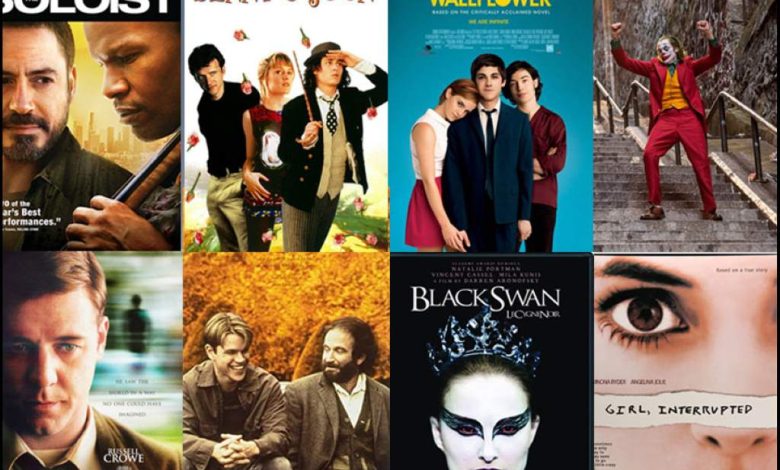Films That Beautifully Depict Mental Health Recovery: A Cinematic Journey to Healing

When it comes to mental health, films have long served as a powerful tool for representation and education. The narratives of individuals battling mental illnesses, working toward recovery, and ultimately finding their way back to a better state of well-being resonate deeply with audiences. These Films that beautifully depict mental health recovery provide comfort, hope, and understanding to those who may be going through similar experiences. In a world that increasingly values mental health awareness, films that beautifully depict mental health recovery hold immense importance. If you want to explore more on topics such as mental health and other engaging stories, explore Hot Buzzs for some of the best recommendations.
In this article, we’ll dive deep into the films that not only showcase the struggles associated with mental health but also provide insight into the healing process. These Films that beautifully depict mental health recovery in a way that engages the viewer emotionally and intellectually.
“A Beautiful Mind” (2001) – The Power of Persistence and Support

“A Beautiful Mind,” directed by Ron Howard, is one of the most iconic films that depict mental health recovery. It tells the story of mathematician John Nash, played by Russell Crowe, who struggles with schizophrenia. The film emphasizes the importance of perseverance and how recovery is possible through a support system.
Statistics reveal that about 1 in 100 people worldwide suffer from schizophrenia, a condition that can significantly impact an individual’s ability to lead a normal life. Nash’s journey through his symptoms, the debilitating effects of delusions, and ultimately finding a way to manage his condition shows audiences that mental illness doesn’t define a person. If you love action-packed cinema, you can also check out https://hotbuzzs.com/best-sniper-movies/ to find gripping tales of precision and focus
“The Perks of Being a Wallflower” (2012) – Healing Through Friendship
This coming-of-age film, directed by Stephen Chbosky, explores themes of trauma, mental illness, and the healing power of friendship. Charlie, the protagonist, struggles with depression and anxiety after experiencing childhood trauma. The film beautifully illustrates the healing process through his relationships with Sam and Patrick, two friends who help him face his past and begin to heal.
Studies suggest that forming strong interpersonal relationships can significantly improve mental health, especially for individuals dealing with trauma and depression. “The Perks of Being a Wallflower” highlights how emotional support and connection can help individuals confront their pasts and move forward with their lives. It shows that recovery is often about more than simply healing alone; it’s about healing together.
The film’s depiction of mental illness is both tender and realistic, offering a window into the challenges that people with mental health struggles face every day. As Charlie learns to overcome his demons, viewers can see the delicate balance of love, friendship, and healing.
“Silver Linings Playbook” (2012) – Navigating Bipolar Disorder with Resilience
“Silver Linings Playbook,” directed by David O. Russell, is a powerful exploration of mental health recovery. The movie follows Pat Solitano (played by Bradley Cooper), who has recently been discharged from a psychiatric hospital after a breakdown triggered by bipolar disorder. Pat’s journey is not just about managing his mental health but also about reconnecting with family, love, and his community.
Bipolar disorder affects approximately 2.8% of the U.S. adult population. The film sheds light on the challenges of living with this condition and the impact it can have on relationships. It presents an honest portrayal of recovery, where the goal is not perfection but progress. One of the most compelling aspects of the film is how Pat, despite his setbacks, finds support and purpose in the people around him, particularly in his connection with Tiffany (played by Jennifer Lawrence).
This movie emphasizes the importance of embracing imperfections and acknowledging that recovery is a dynamic process that involves constant work, patience, and support.
“Good Will Hunting” (1997) – The Journey of Self-Acceptance and Healing
“Good Will Hunting,” directed by Gus Van Sant, tells the story of Will Hunting (Matt Damon), a janitor at MIT who harbors immense intellectual potential but is hindered by deep emotional scars from his troubled childhood. This film showcases the transformative power of therapy, self-acceptance, and personal growth.
Will’s story is a testament to the fact that mental health recovery is not just about treating a disorder but about addressing the emotional wounds that often remain hidden. His sessions with therapist Sean Maguire (Robin Williams) provide an insightful look into the healing power of talking about one’s past, facing personal demons, and allowing oneself to be vulnerable.
Research on therapy’s effectiveness in mental health recovery supports the central theme of the film. Studies have shown that cognitive-behavioral therapy (CBT) and other therapeutic methods are essential tools for managing mental health disorders, particularly those rooted in trauma and emotional pain. Explore Crime Movies That Challenge Audience Expectations.
“The Soloist” (2009) – The Intersection of Music and Mental Health
“The Soloist,” directed by Joe Wright, is based on the true story of Nathaniel Ayers, a homeless man with schizophrenia who was once a promising classical musician. The film portrays the intersection of mental illness and the arts, demonstrating how music serves as a means of expression, connection, and recovery for those struggling with mental health challenges.
Mental health experts often highlight the therapeutic benefits of creative expression. Music therapy, in particular, has been shown to improve mood and reduce symptoms of anxiety and depression. “The Soloist” illustrates how Ayers’ rediscovery of his love for music allows him to cope with his symptoms and find a sense of purpose, offering hope to those who may feel disconnected from the world around them.
The film showcases that recovery doesn’t always follow a linear path. It also emphasizes that mental health challenges are not something to be ashamed of but rather part of a broader human experience.
“The Skeleton Twins” (2014) – Finding Healing Through Family
“The Skeleton Twins” is an indie dramedy that explores the emotional and mental struggles of siblings Maggie (Kristen Wiig) and Milo (Bill Hader), who are both coping with significant mental health challenges. After a failed suicide attempt by Milo, the two siblings reconnect, and their journey together reflects the ups and downs of recovery.
One of the film’s most poignant messages is the importance of family in the recovery process. Mental health professionals often stress the importance of a support system, and the siblings’ dynamic in the film highlights how family bonds can provide the strength needed to heal. The film also touches on the effects of unresolved grief and trauma, showing that recovery is a slow and often difficult process but one that can be accomplished with time and love.
“Inside Out” (2015) – The Emotional Complexity of Mental Helth Recovery
“Inside Out,” directed by Pete Docter and Ronnie del Carmen, takes a unique approach to mental health by exploring the inner workings of an 11-year-old girl’s mind. The film cleverly personifies her emotions—Joy, Sadness, Anger, Fear, and Disgust—giving viewers an understanding of how complex and interconnected emotions are during times of personal upheaval and growth.
Although it’s an animated film, “Inside Out” conveys a message that resonates with viewers of all ages. It demonstrates that healing involves recognizing and embracing all emotions, even the seemingly negative ones. Mental health recovery isn’t about eliminating sadness but understanding its role in the broader emotional landscape.
Conclusion
These Films that beautifully depict mental health recovery, they are reminders of the strength and resilience of individuals dealing with mental health issues. They offer hope, insight, and valuable lessons on how recovery is possible, even in the darkest of times. Through these cinematic journeys, viewers can find comfort in knowing that they are not alone in their struggles, and healing is within reach.
FAQs
What are the best films that depict mental health recovery?
Films like “A Beautiful Mind,” “The Perks of Being a Wallflower,” and “Silver Linings Playbook” are among the best in portraying mental health recovery.
How can films help in understanding mental health?
Films can raise awareness, provide a mirror for those going through similar struggles, and help viewers develop empathy toward individuals with mental health issues.
Is therapy a common theme in mental health recovery films?
Yes, many films, including “Good Will Hunting,” highlight the transformative power of therapy in the healing process.
What is the role of support systems in recovery?
Support systems, whether family, friends, or caregivers, play a crucial role in mental health recovery, as seen in movies like “A Beautiful Mind.”
Can creative expression aid in mental health recovery?
Yes, creative expression, such as music or art, is shown to help individuals manage their mental health and express their emotions, as seen in “The Soloist.”



